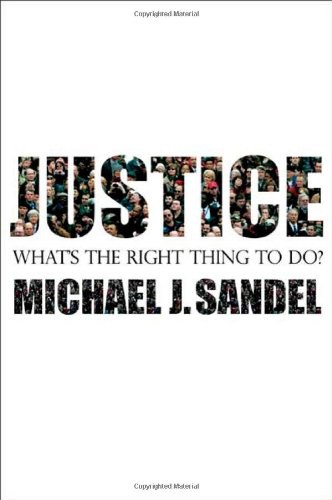
"Justice: Thinking Through the Tough Decisions"
书名:Justice
1
0

西游记 2023-06-01 11:53:47
After Nietzsche hollered "God is dead", do we still have common truths? It partly explains the spiritual crisis of people in the post-truth era. Nowadays, the controversies take place seldom between opinions, but between truths. We can easily differ good from bad, right from wrong, but we cannot distinguish two or more right things. Thats why the debates are endless and worthwhile.
Our goal is not to find the sole and final truth, which isnt likely to exist, but to "think it through" when encountering questions. This is the most important takeaway from this book. We should learn from the authors thinking pattern – think more, think deep, think free.
The arguments about justice can be analyzed from three main aspects: maximizing welfare (utilitarianism), respecting freedom (libertarianism), and promoting virtue (Aristotle). For Kant and Rawls, who are both advocates of individual autonomy and freedom, the right is prior to the good. The principles of justice that define our duties and rights should be neutral with respect to competing conceptions of the good life. To arrive at the moral law, Kant argues, we must abstract from our contingent interests and ends. To deliberate about justice, Rawls maintains, we should set aside our particular aims, attachments, and conceptions of the good and think behind a veil of ignorance.
Aristotle is the adverse, for he maintains that one of the purposes of a just constitution is to form good citizens and to cultivate good character.
相关推荐
萤火谷的梦想家
艾莉森•麦吉出生于1960年,是美国《纽约时报》畅销书作家,同时也是大都会州立大学创意写作课的教授。她的作品被翻译成20多种语言并出版,也曾被提名普利策奖,并获得苏斯博士奖金奖、克里斯托弗图书奖、美国 [美]艾莉森•麦吉/[美]克里斯托弗•丹尼斯/绘 2023-03-27 16:50:25鬼马女神捕1·绝密卧底(上)
腹黑凤凰vs毒舌鸡妖——蓝翎:“小姬,跟我去人界吧!”姬十四:“干吗?让人宰了我做小鸡炖蘑菇吗?”蓝翎:“不啊,让妖怪宰了你做小鸡炖蘑菇更气派。”凤凰蓝翎和鸡妖姬十四生活在无忧无虑的灵界。他们的故乡叫 郝天晓 2023-04-17 00:22:47© 2023-2025 百科书库. All Rights Reserved.












发表评价